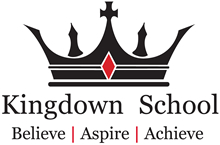5 What it means
5.3 Checklist
The Open Library suggests the following mnemonic to help you: PROMPT, for
- Presentation
- Relevance
- Objectivity
- Method
- Provenance
- Timeliness
There is a checklist in the Appendix that you can use to help you apply the PROMPT criteria.
5.3.1 Presentation
Poor presentation makes information difficult to use. If the website owner has taken little care in presentation, perhaps they have been equally lax in the quality of the information.
- Look out for language, writing style, structure and layout.
- Is the information clearly communicated?
5.3.2 Relevance
Information is only useful if it meets your needs. Be clear about what it is that you are looking for – this will help you be ruthless in discarding things that are irrelevant, perhaps because they are inappropriate geographically, are at the wrong level (too specialised or too general), or have the wrong emphasis.
- Have a search strategy – know what you are looking for.
- Look for an introduction or overview to get a quick idea of ‘what it is about’.
5.3.3 Objectivity
In an ideal world, ‘objective’ or ‘balanced’ information would present all the evidence and arguments, and leave you to weigh them up and draw conclusions. In the real world, however, we recognise that all information presents a position of interest, whether this is explicit or not.
You need to develop a critical awareness of the positions represented in what you read, and to take account of them when you interpret the information. An author may be explicitly expressing a particular viewpoint – this is fine as long as you recognise the perspective they represent. Hidden bias, whether or not it is deliberate, can be misleading.
- Do the writers state their position on the issue?
- Is the language emotive?
- Are there hidden, vested interests?
- Look out for opinion presented as if it were fact.
5.3.4 Method
Knowing the methods used is particularly important in judging the reliability of scientific research. But there are some general questions you can ask of any information, for example a newspaper report.
- Is this an opinion or based on data?
- How much data was considered?
- Is it representative or are there sources of bias?
- Is it a review of others' work? Does it cover a wide range?
- Is it a primary source?
5.3.5 Provenance
The provenance of a piece of information (i.e. who produced it, and where it came from) may provide another useful clue to its reliability. It represents the ‘credentials’ of a piece of information that support its status and perceived value.
- Can you identify the authors? Are they well known? Do they have authority in their field?
- Can you identify the organisations involved? What are their interests? Who funds them?
- How is the information published? Is it edited? Is it reviewed, in the same way as a scientific paper?
5.3.6 Timeliness
Generally, up to date information is more useful than old (although an old news item may be useful as a historical document). You will need to judge, knowing what you are looking for, and how likely it is that the information has been superseded. It can also be difficult to tell the true ‘age’ of information: a website may have been recently updated, but still contain old information.
- Is it clear when the information was produced?
- Does the date of the information meet your requirements?
- Is the information obsolete?
